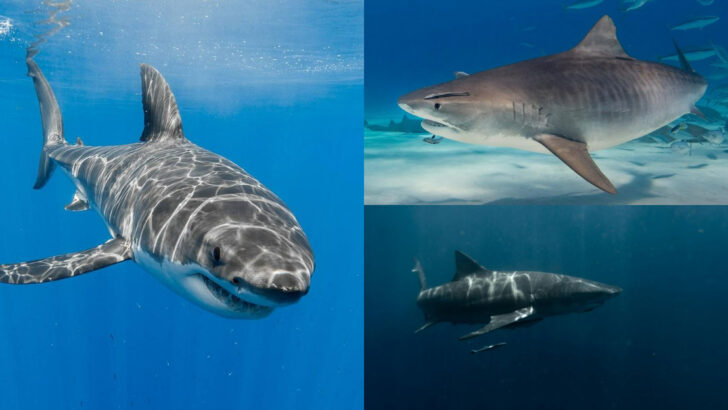Great white sharks have long captured the imagination and fear of many, thanks to their portrayal in movies and media. Unfortunately, this has led to a plethora of myths that cloud the true nature of these majestic creatures. Debunking these myths is essential for understanding and protecting the species.
Myth 1: Man-Eaters
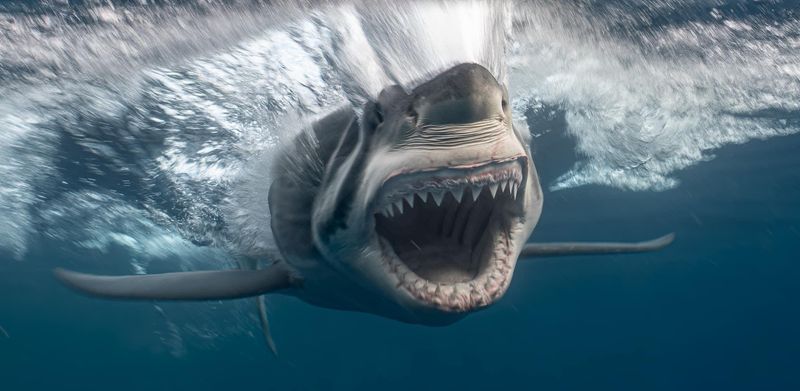
Contrary to popular belief, great white sharks are not the voracious man-eaters depicted in movies. Attacks on humans are rare and usually unintentional. Sharks often mistake humans for seals or other prey. Their primary diet consists of fish and marine mammals. Understanding this can change the perception that these creatures are out to hunt humans. By appreciating their role in the ocean’s ecosystem, we can foster a sense of respect rather than fear.
Myth 2: Always Aggressive
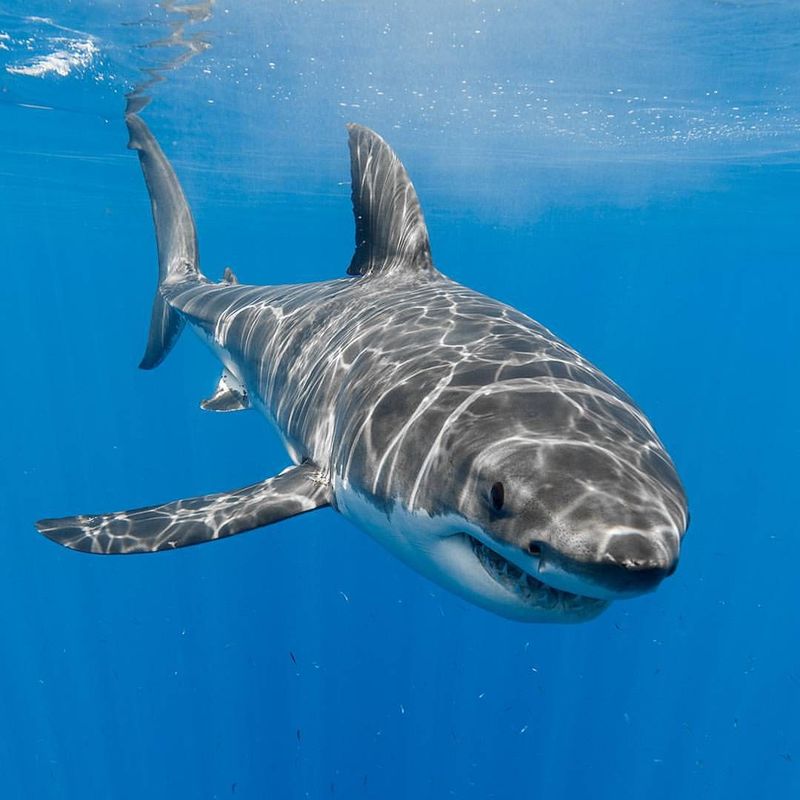
Great white sharks are not inherently aggressive creatures. Much like any other wild animal, they can be curious and cautious. Most interactions with humans are not attacks but rather investigations. They rarely pursue humans after the initial contact. This myth likely stems from a few high-profile incidents. In reality, these sharks contribute to the balance of marine life by managing fish populations. Distinguishing between aggression and natural behavior helps in conserving their habitat.
Myth 3: Sharks Don’t Sleep
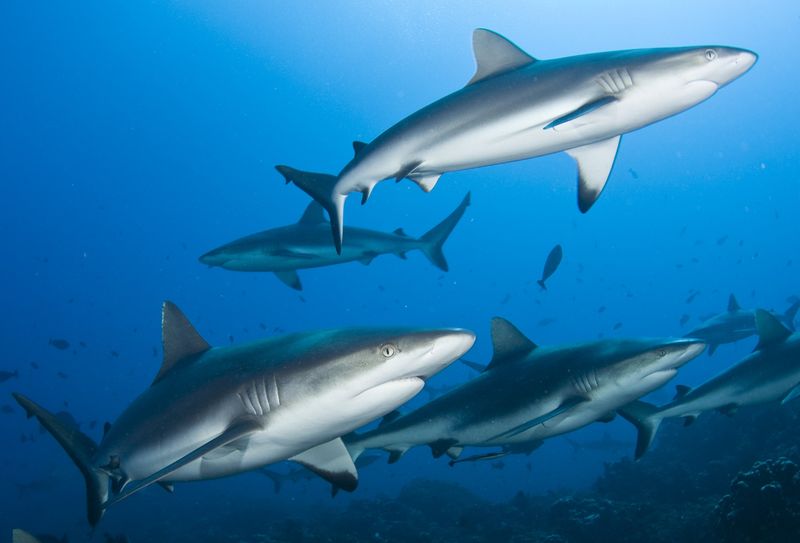
While it’s true that sharks don’t sleep like humans, they do have restful periods. During these times, their movement is minimal, allowing them to save energy. Unlike mammals, sharks must keep water flowing over their gills to breathe, which means some part of their brain remains active. This myth arises from misconceptions about how marine animals rest. Observing their behavior can reveal the nuanced ways they conserve energy while remaining alert to their surroundings.
Myth 4: Only Found in Warm Waters
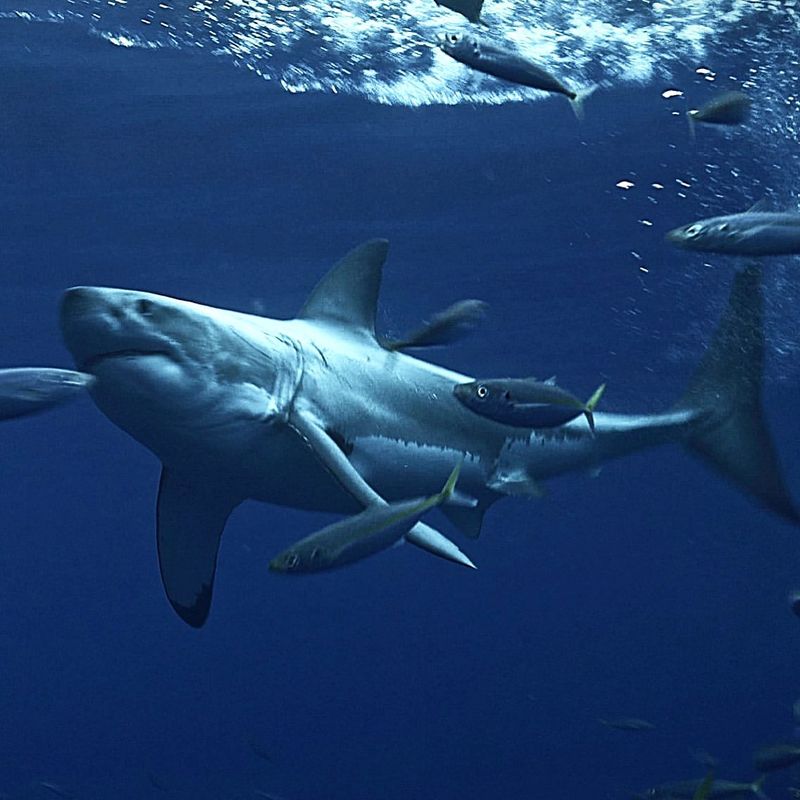
Great white sharks are not limited to warm tropical waters. These adaptable predators are found in various oceans, including cooler regions. Their capability to regulate their body temperature allows them to thrive in different climates. This myth is often perpetuated by selective media coverage. Understanding their widespread habitat underscores the importance of protecting diverse marine environments. These sharks are key indicators of ocean health across the globe.
Myth 5: Sharks Are Dumb
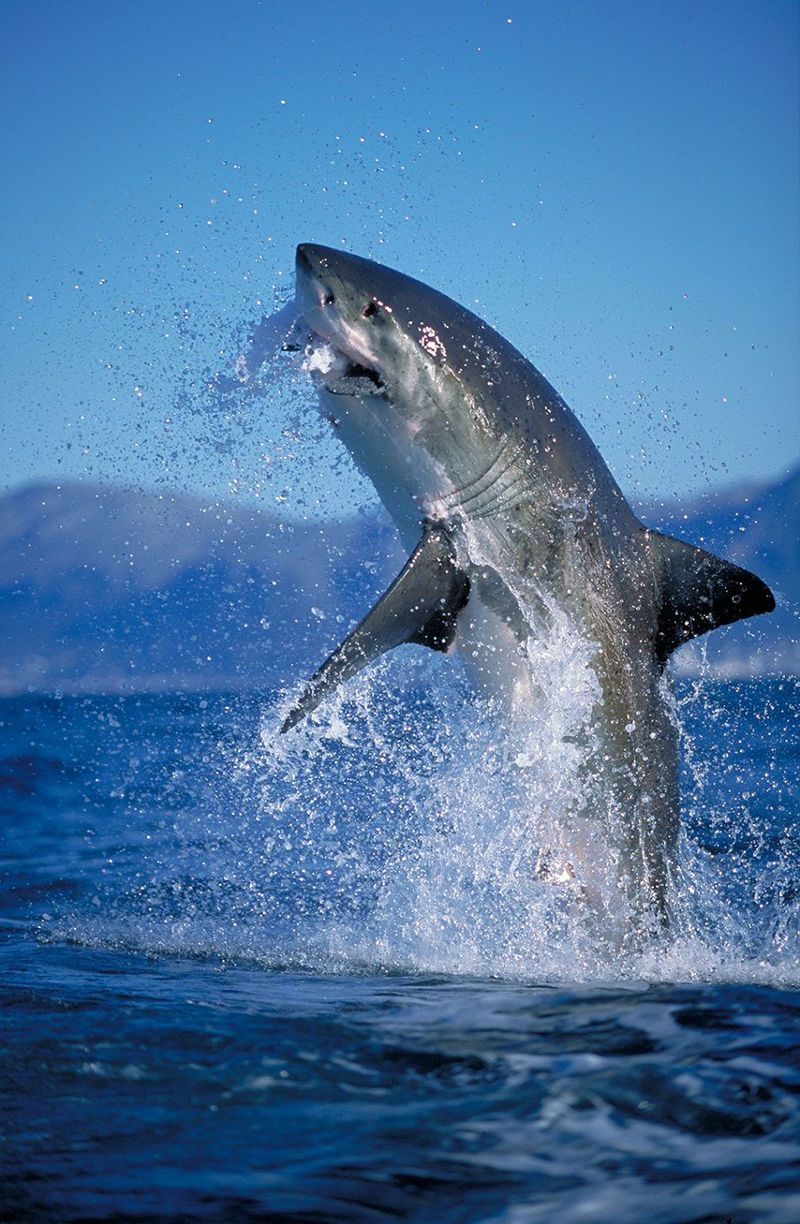
Sharks possess remarkable intelligence, evident in their hunting strategies and social behaviors. They exhibit learning abilities and can adapt their tactics based on experience. This myth of low intelligence undermines their sophisticated nature. Research has shown sharks using their acute senses to track prey and navigate vast ocean spaces. Recognizing their cognitive abilities fosters a deeper appreciation for these ancient creatures. It challenges the notion that they are purely instinct-driven predators.
Myth 6: All Sharks Are Huge
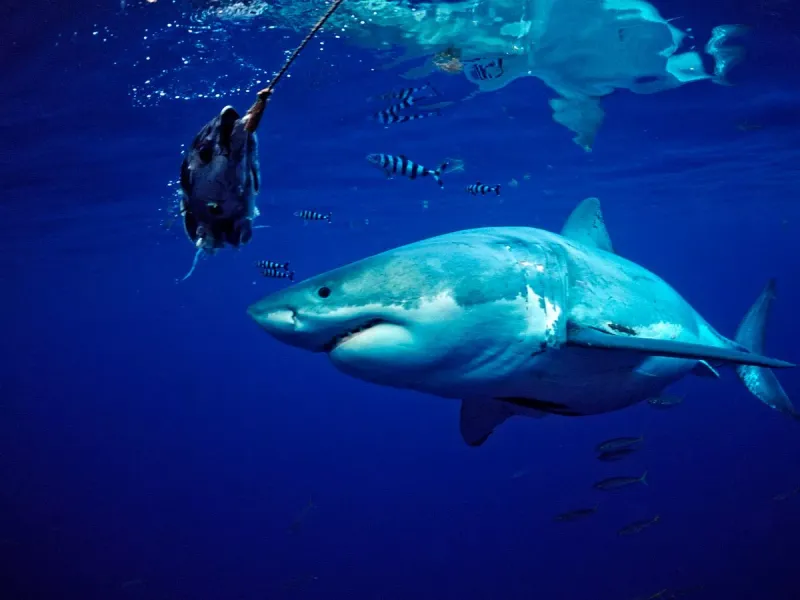
Not all great white sharks grow to gigantic sizes. While they can reach impressive lengths, many remain relatively small. Juveniles and young adults are often significantly smaller than their famous mature counterparts. This myth arises from a focus on the largest specimens. By acknowledging the diversity within the species, we gain a fuller picture of their life cycle and ecological role. It’s important to appreciate the varying sizes and stages of these formidable predators.
Myth 7: They Hunt Humans
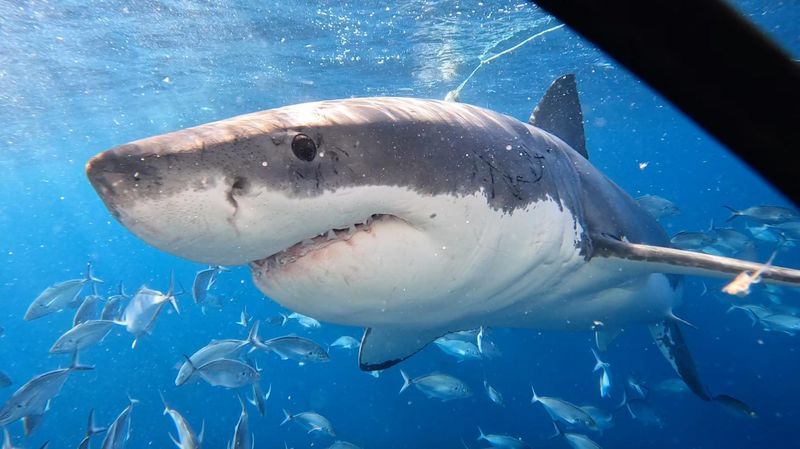
The idea that great white sharks actively hunt humans is misleading. Their diet mainly consists of marine animals like seals and fish. Instances of shark bites on humans are often cases of mistaken identity. After an initial bite, they usually retreat once they realize the human is not their typical prey. This behavior shows that humans are not part of their natural diet. Dispelling this myth is vital for reducing unwarranted fear and promoting shark conservation efforts.
Myth 8: Vulnerable to Extinction
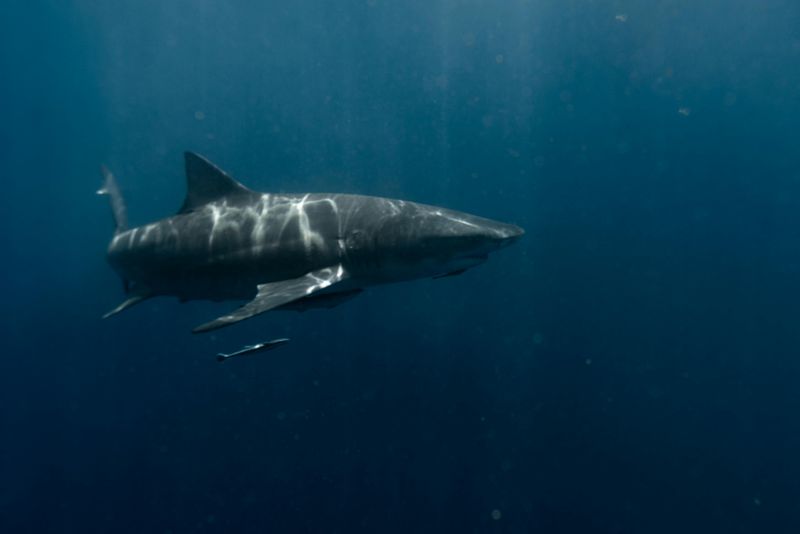
While great white sharks face threats from fishing and environmental changes, they are resilient creatures. Conservation efforts have helped stabilize some populations. This myth exaggerates their vulnerability, overshadowing successful preservation initiatives. Understanding their status in the wild involves recognizing both the challenges and successes in their conservation. Public awareness can further support these efforts, ensuring that these majestic creatures continue to thrive within their natural habitats.
Myth 9: Sharks Are Solitary
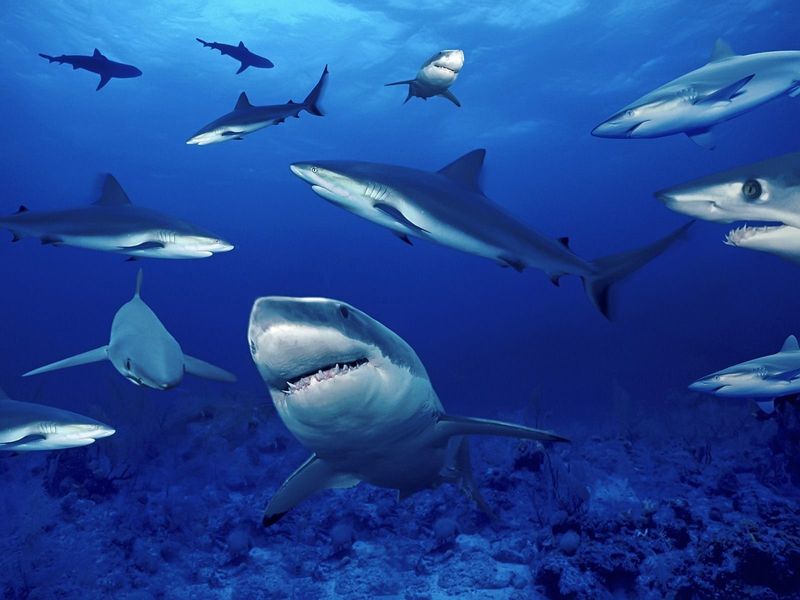
Despite their reputation as solitary predators, great white sharks often display social behaviors. In certain areas, they gather in groups, particularly where food is abundant. These interactions can be complex, with sharks establishing hierarchies and social bonds. This myth stems from limited observations in the wild. By studying their social structures, scientists gain insights into their communication and cooperation. This knowledge challenges the perception of sharks as lone hunters.
Myth 10: Sharks Have Unlimited Lifespans
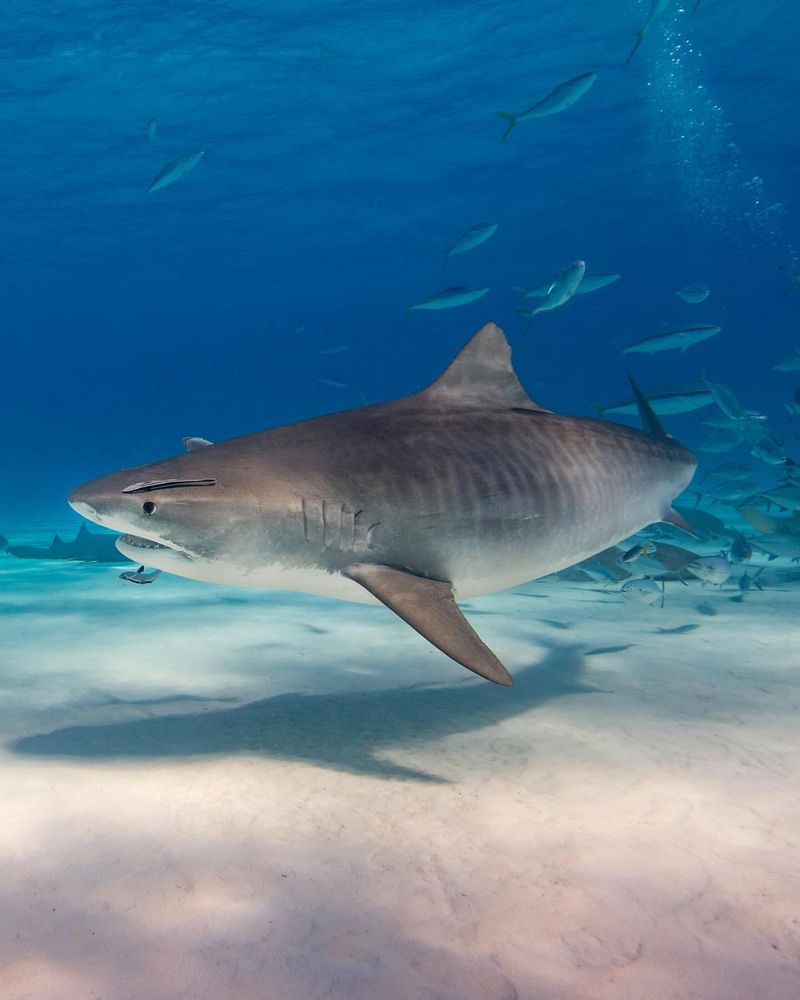
Great white sharks do not live forever. They have a lifespan that, while impressive, is finite, typically reaching up to 70 years. Age can be determined by examining growth rings in their vertebrae. This myth likely arises from their long-lived nature compared to other fish. Recognizing their natural lifespan is crucial for conservation strategies. It ensures that mature individuals are protected, allowing them to reproduce and contribute to the stability of their populations.

